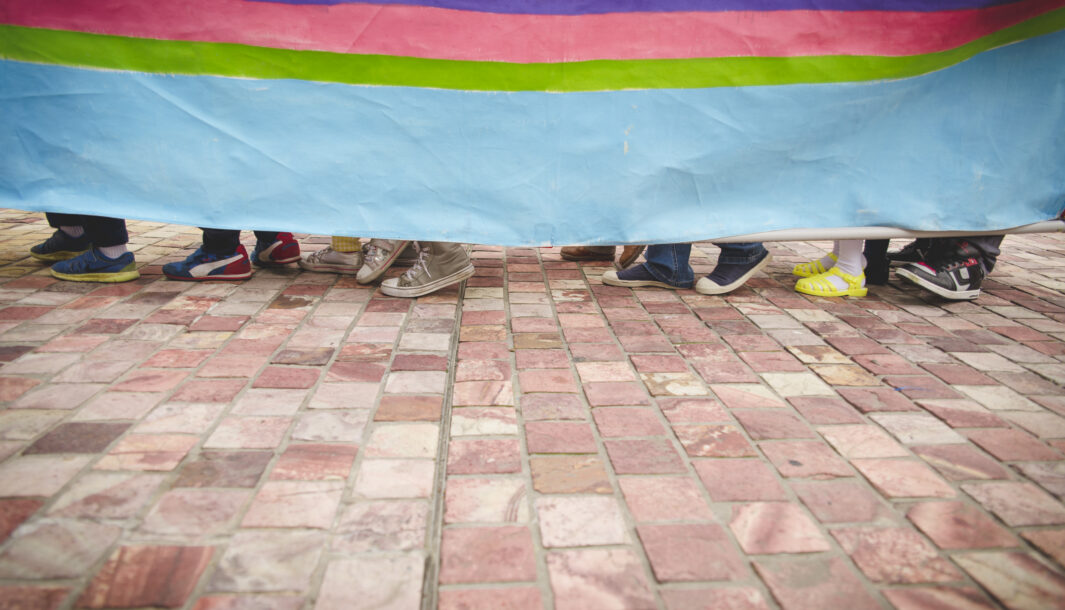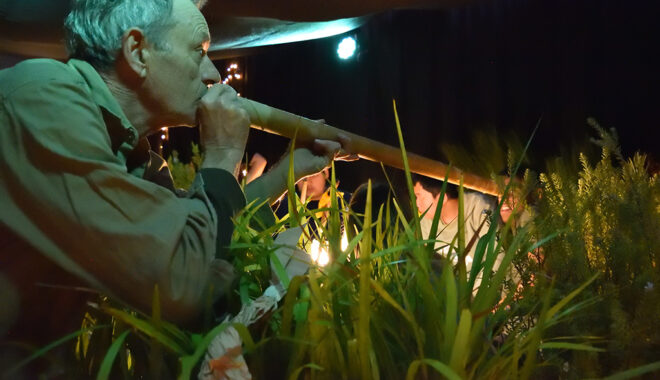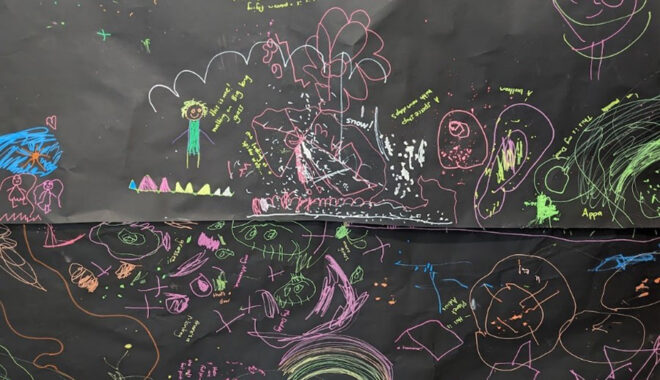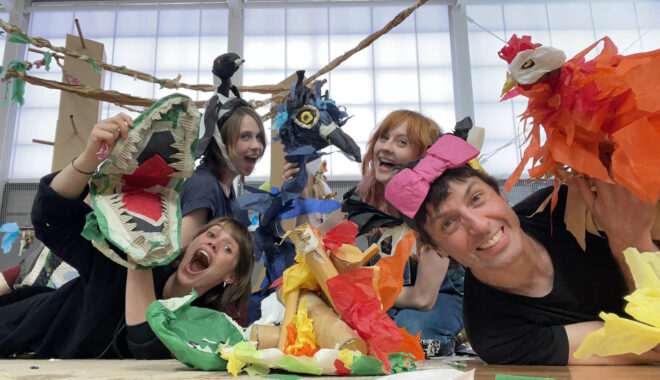18 Jul 2022 Education News
A boat full of cookies: making the most of uncertainty

By Freya McGrath
I joined the Polyglot team as Assistant Producer in January 2021 at a time when most of us thought the months of lockdowns and COVID-related uncertainty might be coming to an end. It was summer, shows were starting to tentatively return, people gathered for picnics of increasing sizes. It felt like maybe, just maybe, lockdowns were a thing of the past. For me, 2021 promised the excitement of my first full-time job after many years of freelancing. I was looking forward to joining this world-leading company, being with my colleagues in the Polyglot office, collaborating with children, visiting schools – the works! But 2021 had other ideas. By February we were back in lockdown and I had to adjust my expectations.
I have been thinking a lot about adaptation recently. Working with children requires adaptability, being responsive to the child. From day one working at Polyglot, I started hearing this phrase ‘desire lines’ – referring to the way children have unique, random, often inspired creative instincts that are like pathways for creative play. Perhaps Polyglot’s expertise in flexibility is what helped the company shift in 2020 and 2021 when we were forced to negotiate a new way of working and producing theatre for children. As a new team member, it was relatively easy for me to adapt alongside the company, but looking back it was a unique introduction to Polyglot.
I met a lot of our core artists over Zoom; I saw them in their houses, where the boundary between work and home life began to blur, and met their kids and pets as they climbed into frame. I was amazed by the skill and good humour of these artists, who had done brilliantly working online, including creating workshops from their homes.
A large part of my job in 2021 involved helping run these online workshops. Sometimes a hundred or so kids crowded into a Zoom gallery, where artists like Afsaneh Torabi and Sylvie Meltzer captured their attention and created imaginative spaces for them to escape into, while in their homes.
From my living room-turned-office, I watched kids build completely original creatures and shadow characters: a blob-style critter who loved hugs, a donut who was angry because he had no toppings and a boat full of cookies that travelled through the deepest, darkest forests. They took their creations on incredible journeys – along the dining table, beside Milo tins in the pantry, into a sibling’s room. These activities gave the children a shift in energy. We were all locked in and feeling restless, our spaces sometimes felt stale, but in these workshops we were able to shift our perspective and escape into imaginative play. It made a world of difference.
I remember keenly that after one session we chatted with a teacher who told us how valuable and inspiring the workshop had been. The school had found that tactile activities – making and doing tasks – trumped all other teaching methods and helped with the difficult task of keeping the students engaged online. I spent a lot of time in 2021 speaking with educators and found that they were committed to and understood the value of immersive, artistic experiences for young people and wanted to nourish their creativity. Like the Polyglot team, educators are expert at adapting.
“…the girls were engaged for over one hour which is incredible for students this young. Freya and Afsaneh were fantastic facilitators who pitched it just right for the age and stage and they gave time for students’ to share their creations at the end which was so valuable… it has been such a great way to scaffold learning online during a pandemic and bring joy to our learners!” Educator, online workshops
In 2022, I’ve been able to spend more time in person at schools across Victoria, particularly working as a Paper Planet facilitator in specialist and special development schools. Working at these schools has been one of the best parts of my year. It has been a great privilege to step into a facilitator role and practice everything that I have learnt from Polyglot artists, in particular creative problem-solving and focus.
At one school, I met a young person who was too scared and anxious to enter the Paper Planet world we had created. I tried various techniques to connect with him, trying to work out what fascinated him and how to channel his energy. Eventually I tried an old favourite – ripping up some paper and creating snow! He loved the excitement of throwing the scraps into the air and watching them float down. I asked him to help me make the snow and in doing so we took a few steps into the room. Over the course of 15 minutes we slowly edged into the space, leaving a trail of snow behind us. We had entered the space gently, in his own time by finding something simple and magical to do together. By the end of the session he was running around the whole planet, and coming back to tell me all about it. “Does Paper Planet happen every Friday?” he asked. “I want Paper Planet to stay forever.”
“I loved that the staff were so calm and welcoming with all the students and took their time… They took on the students ideas and ran with them.” Educator, Paper Planet, 2022
So much of the theatre Polyglot makes is about adaptation, whether that be through turning a piece of paper into a snow storm, or encouraging children to imagine that their kitchen has transformed into a forest. My, perhaps unusual, entry into this company has taught me the value of adapting. Through adaptation we can make the most of uncertainty, we can foster creativity and find new ways of connecting.
Biography
Freya McGrath is an early career producer and performance maker working across theatre, dance, and film. She is most interested in participatory movement work that brings people together and gets them exploring and connecting to the environment around them.
Freya attended the University of Melbourne, graduating in 2018 with a Bachelor of Arts (English and Theatre Studies). In that same year, she created and performed The 24 Hour Dance Project at Melbourne Fringe. From 2019-2020, she held the positions of Associate Producer at Bureau of Works and Assistant Producer at Kath Papas Productions.
Freya maintains an independent production portfolio collaborating with emerging and established artists. She is committed to forwarding discussions about safe practices and wellbeing within the arts industry.







